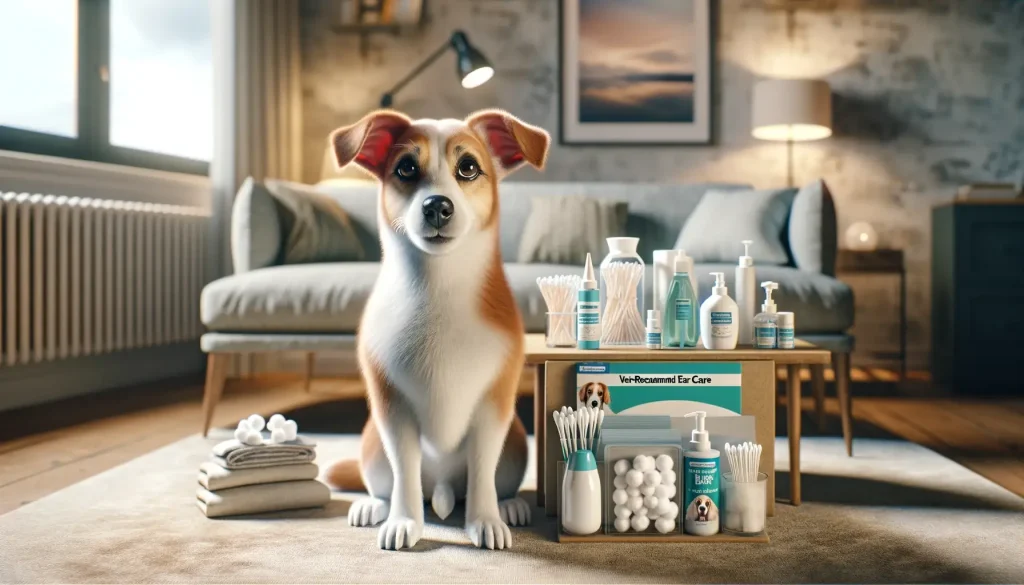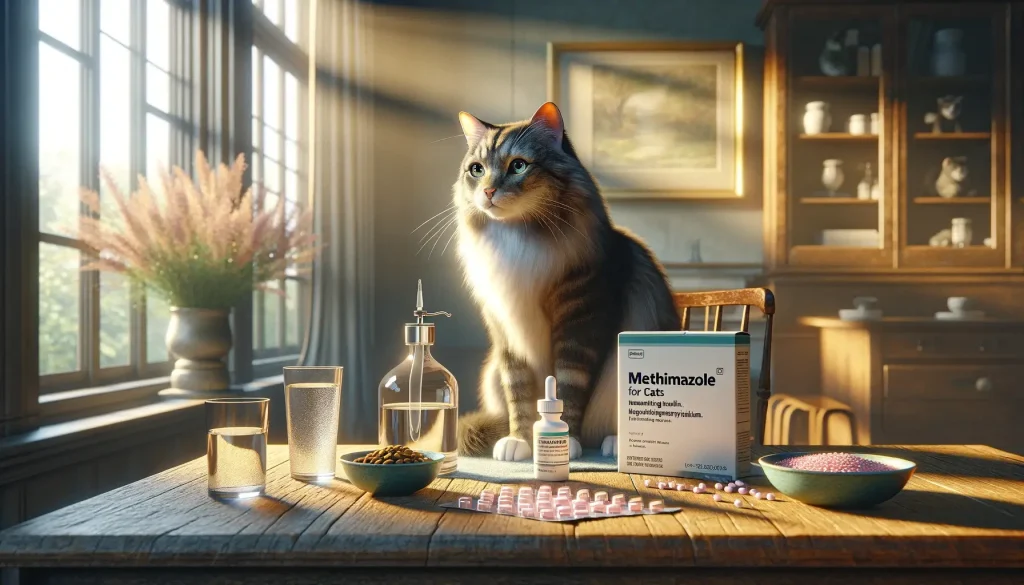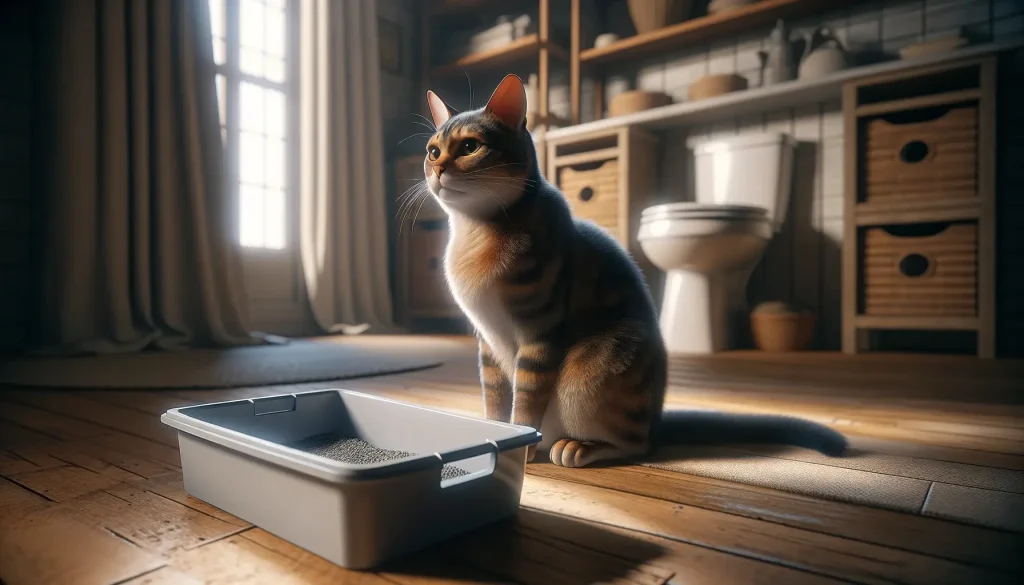
Witnessing your furry friend scooting across the floor or constantly licking at their backside can be concerning and, honestly, a bit troublesome. An itchy butt is a common occurrence in dogs and can result from various issues ranging from anal gland problems, intestinal parasites, allergies, to matted fur, or even digestive disturbances such as constipation and diarrhea. Overweight dogs can also struggle with reaching their back end to clean themselves, causing discomfort and additional scooting actions. Fortunately, there are effective home remedies and simple tricks to help remedy your dog’s discomfort and keep their tail wagging happily.
Some straightforward solutions involve addressing the diet with increased fiber or ensuring your dog gets plenty of exercises to improve digestion. Regular grooming, especially sanitary trims, can prevent painful matting and accumulation of debris around the anus. For those troublesome anal glands, warm compresses might be the answer to encouraging natural draining, while a trip to the vet could rule out parasites or recommend the use of dewormers. Indeed, each cause of an itchy backside has a tailored solution that can grant relief to your pet.
But, with so many possible reasons behind your dog’s itchy butt, how do you identify the root cause and apply the most effective solution? Let’s dive into understanding the common culprits and practical ways to help your furry friend find relief.
Root Causes of a Dog’s Itchy Butt
When your dog can’t seem to stay off their hindquarters, it might point to issues that need immediate attention. From anal gland issues to intestinal parasites, allergies, matted fur, or complications from constipation and diarrhea—all these conditions could lead your dog to scoot, lick, or bite at their back end in an attempt to relieve discomfort. Notably, overweight dogs might face extra hardship keeping themselves clean due to physical restrictions caused by excess weight.
Anal gland problems are a top offender. These glands may become full and fail to empty properly, causing an itch that drives dogs to scoot or lick the area excessively. Regular bathing and manual gland expression can prevent impaction or infection, offering a sigh of relief. Meanwhile, intestinal parasites like worms induce a similar rectal itch. A quick vet visit for a fecal test can confirm their presence, and prescribed dewormers will take care of the problem.
Another common source of discomfort is allergies. Dogs can develop allergies to certain foods, leading to itching around their rear alongside other distressing symptoms like skin rashes or hair loss. Transitioning to a hypoallergenic diet might be necessary. Additionally, matted fur in long-haired breeds, often resulting from poop getting tangled in fur, causes itchiness around the anus. Sanitary grooming is crucial to address this.
Not to be overlooked, gastrointestinal disturbances such as constipation and diarrhea also lead to an irritated backside, often remedied by tweaking the diet to incorporate more fiber or water. For dogs struggling with obesity, a comprehensive health plan to trim down the excess weight will improve their overall liveliness and ability to self-groom.
It’s essential to observe your dog for symptoms and take action by consulting with a veterinarian when uncertain. Each dog is unique, and their needs could vary, making personalized care pivotal. By familiarizing yourself with these common irritants and useful remedies, you can ensure your dog remains happy, healthy, and far from the discomfort of an itchy butt.
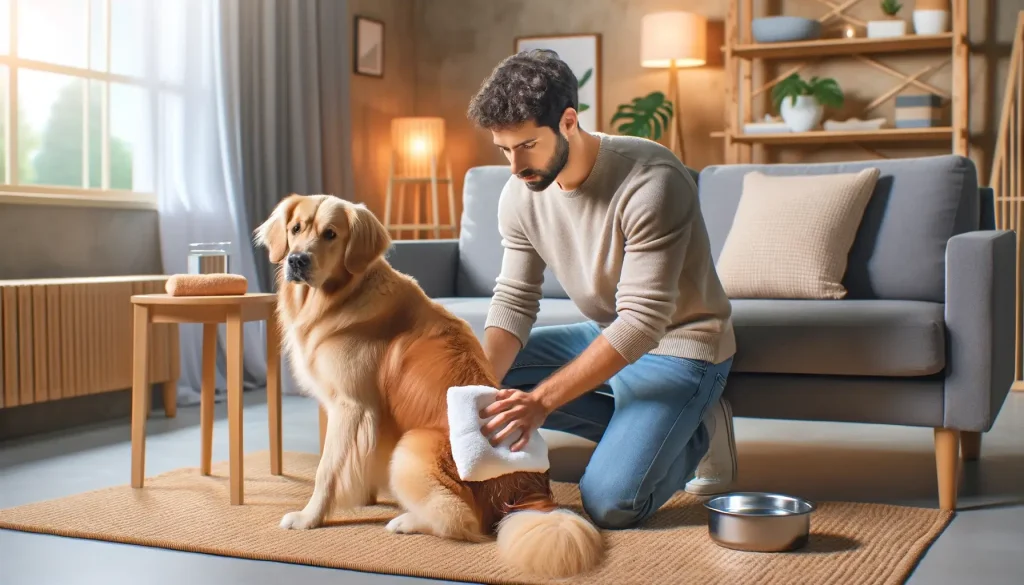
Home Care for Dogs with Itchy Butts
If your dog seems to be constantly focusing on their rear end, you might feel both concerned and a bit helpless. But there’s good news. There are straightforward, at-home strategies you can employ to help your furry friend feel better. Here, we look at practical remedies to address the root causes of an itchy dog butt, from anal gland issues to intestinal parasites, allergies, matted fur, constipation and diarrhea, and problems linked to overweight dogs.
For anal gland issues, warm compresses can work wonders. Applying a warm, moist cloth to your dog’s rear end a few times a day can help to naturally drain the glands, relieving discomfort. If the glands seem impacted or infected, consult with your veterinarian for the best approach, which may include manual expression at bathtime.
Intestinal parasites are another potential culprit of an itchy butt. A fecal test performed by your vet can confirm their presence. If parasites like worms are the issue, your vet will likely prescribe dewormers to eliminate them. Regular vet visits can help catch these pests early before they cause more severe problems.
When it comes to allergies, particularly those linked to food, you might need to consider switching to a hypoallergenic diet. Foods that don’t contain common allergens can help alleviate rear-end itching and other allergy symptoms like skin rashes or hair loss. Maintaining a dialogue with your veterinarian can help you find the best dietary options for your pet.
Matted fur around the anus can also be a source of irritation. Regular grooming and sanitary trims can keep the area clean and free from entanglements, drastically reducing discomfort. For dogs with particularly long or dense fur, professional grooming might be necessary to prevent future issues.
Constipation and diarrhea can both cause an itchy butt due to the irritation of the area from excessive licking or scooting. Introducing more fiber into your dog’s diet with dry food enriched in fiber or fresh veggies, such as carrots, beets, and pumpkin, can help regulate bowel movements. Similarly, ensuring your dog gets plenty of exercise can improve digestion and alleviate constipation.
For overweight dogs, a comprehensive plan to reduce excess weight can significantly improve their ability to self-groom and decrease discomfort. This may involve a tailored diet and exercise regimen designed by your vet.
Last but not least, consider incorporating probiotics into your dog’s diet. They’re known to enhance digestive health and can be beneficial for dogs suffering from anal gland issues or hard stools. Always consult with your vet before adding any new supplements to your dog’s routine.

Dietary Measures for an Itchy Dog Butt
Diet plays a pivotal role in managing your dog’s anal gland and digestive issues that lead to an itchy butt. Here’s how to tweak your dog’s diet for relief:
- Increase Dietary Fiber: Adding fiber-rich foods like carrots, beets, and pumpkin to your dog’s diet can help resolve constipation. Dry foods with high fiber content can also promote healthy bowel movements, addressing both constipation and diarrhea.
- Consider Hypoallergenic Foods: For dogs with allergies, transitioning to a hypoallergenic diet can reduce reactions, including itchy rears caused by food intolerances.
- Add Probiotics: Including probiotics in your dog’s diet enhances gut health. This can be particularly beneficial for managing soft stools and supporting the natural emptying of anal glands.
When to Schedule a Vet Visit
Knowing when to handle your dog’s itchy butt at home and when to call the vet is crucial. Certain symptoms and situations warrant professional help to ensure your furry friend’s health and comfort.
Anal gland issues often lead to noticeable discomfort. If your dog is scooting frequently or you spot obstructions near the anus, it’s time for a vet visit. Manual expression of these glands, if not naturally emptied, can prevent impaction or infection, but it’s best done by a professional to avoid harm.
Intestinal parasites like worms are a common cause of rectal itching. If you suspect your dog might have parasites, a fecal test performed by a vet is essential. Identifying and treating with the appropriate dewormers can quickly resolve the itch and discomfort.
When it comes to allergies, pinpointing the exact cause can be tricky. If your dog’s itchy butt is accompanied by skin rashes or hair loss, and you’ve considered a dietary change without improvement, a vet can offer specialized tests and recommend a suitable hypoallergenic diet.
Matted fur around the anus, a common issue in long-haired breeds, requires professional grooming if severe. Sanitary trims by a skilled groomer can alleviate itching and prevent future occurrences.
For issues related to constipation and diarrhea, if simple dietary adjustments don’t help, a vet visit is necessary. Persistent symptoms might indicate a more serious underlying condition needing medical intervention.
Overweight dogs struggling to clean themselves properly can benefit from a vet-designed health plan. It’s important to address the excess weight not just for the sake of alleviating the itchy butt but also for the overall health and mobility of your pet.
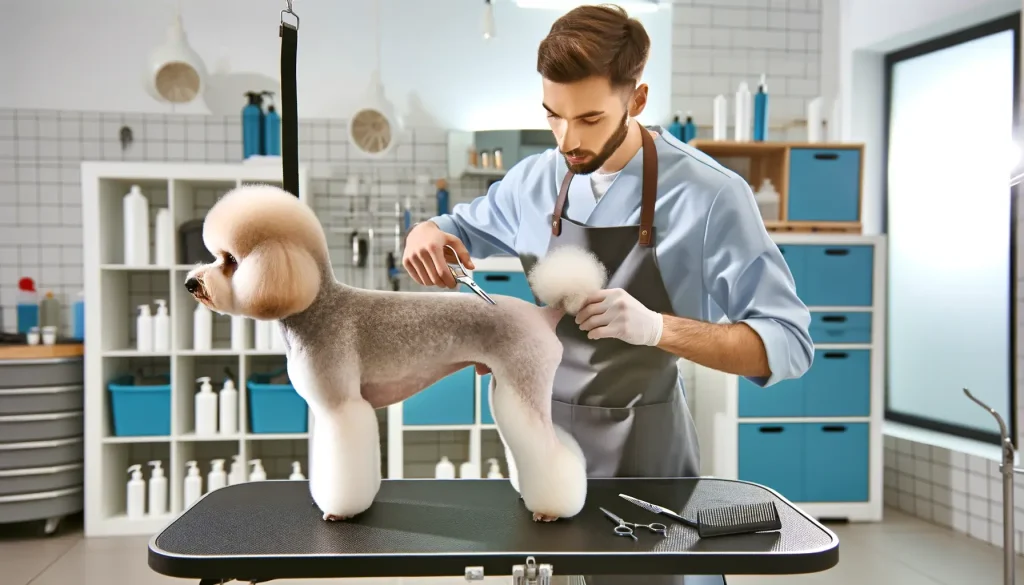
Grooming Techniques to Prevent Dog Itchy Butt
Besides dietary adjustments, proper grooming can prevent and alleviate itchy behinds in dogs. Here’s what you can do:
- Regular Sanitary Trims: Keeping the fur around your dog’s anus trimmed can prevent matting and accumulation of feces, which cause irritation and itchiness.
- Keep Your Dog Clean: Regular baths help remove dirt and debris that could irritate the skin around the anus. During bath time, manually expressing the anal glands can prevent impaction.
Employing these home care strategies greatly improves your dog’s comfort levels. When adjusting your dog’s diet or adding supplements like probiotics, it’s always best to consult with a veterinarian to ensure these changes fit your pet’s specific health needs.
By integrating these dietary and grooming practices into your dog’s regular care routine, you can effectively manage and prevent the discomfort of an itchy butt. Always keep an eye on your pet’s behavior and physical condition, and don’t hesitate to seek veterinary care if the problem persists or worsens.
Beginner Guide to Raising Quail at Home
What are the Signs of a Dog Concussion?
What Causes Your Dog’s Ears to Smell Bad?
When your dog’s ears start to emit an unpleasant odor, it might leave you puzzled…
Methimazole Treatment for Cat Hyperthyroidism
Methimazole plays a crucial role in managing feline hyperthyroidism, a condition marked by an overactive…
Got Hummingbirds in your Backyard? Here’s How to Care for Them.
Why Does Your Cat Pee Outside the Litter Box?
Cat’s Litter Box Issues It’s not uncommon for cat owners to face the frustrating dilemma…


